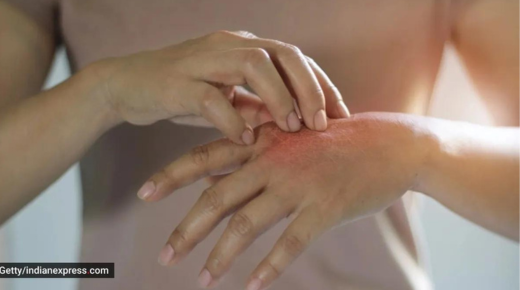1. Turmeric Paste: Anti-Inflammatory Hero
Turmeric, known for its anti-inflammatory properties, is an effective remedy for skin allergies. Make a paste with turmeric powder and water, apply it to the affected area, and leave it for 15-20 minutes. This helps reduce itching and redness, promoting faster healing.
2. Neem Leaves: Natural Antiseptic
Neem leaves are renowned for their antiseptic and anti-inflammatory properties. Crush fresh neem leaves to make a paste and apply it to the allergic area. Alternatively, boil neem leaves in water, strain, and use the water to wash the affected skin Homewatch CareGivers of Chantilly.
3. Aloe Vera: Cooling Relief
Aloe vera gel is a popular remedy for soothing skin allergies. Extract fresh aloe vera gel and apply it directly to the irritated skin. Its cooling effect helps reduce itching and inflammation, while its healing properties promote skin repair.
4. Sandalwood Paste: Calming Effect
Sandalwood paste has a calming effect on itchy and inflamed skin. Mix sandalwood powder with rose water to form a paste, apply it to the affected area, and leave it on for 20-30 minutes. This helps soothe the skin and reduce allergic reactions.
5. Coconut Oil: Moisturizing Balm
Coconut oil is an excellent moisturizer that can help soothe dry, itchy skin caused by allergies. Apply virgin coconut oil to the affected area. Its anti-inflammatory and antimicrobial properties help reduce irritation and prevent infections.
6. Tulsi (Holy Basil) Leaves: Herbal Healer
Tulsi leaves have powerful anti-inflammatory and antimicrobial properties. Crush fresh tulsi leaves to make a paste and apply it to the allergic skin. Alternatively, you can make a tulsi tea and use it as a rinse for the affected area.
7. Multani Mitti (Fuller’s Earth): Cooling Clay
Multani mitti helps cool and soothe inflamed skin. Mix it with rose water or plain water to make a paste and apply it to the affected area. Leave it on until it dries, then rinse off with cool water. This remedy helps reduce itching and redness.
8. Honey: Natural Soother
Honey is known for its antimicrobial and anti-inflammatory properties. Apply a thin layer of raw honey to the affected area and leave it on for 20-30 minutes before rinsing with warm water. Honey helps soothe the skin and promote healing.
9. Turmeric and Milk: Healing Combination
A mixture of turmeric and milk can help soothe skin allergies. Make a paste with turmeric powder and milk, apply it to the allergic area, and leave it for 15-20 minutes. This remedy helps reduce itching and inflammation.
10. Cucumber Slices: Refreshing Relief
Cucumber slices provide a refreshing and cooling effect on itchy skin. Place cold cucumber slices on the affected area for 10-15 minutes. Cucumbers help soothe and hydrate the skin, reducing irritation and redness.
11. Fenugreek Seeds: Anti-Inflammatory Paste
Fenugreek seeds have anti-inflammatory properties that help soothe skin allergies. Soak fenugreek seeds in water overnight, grind them into a paste, and apply it to the affected area. Leave it on for 20-30 minutes before rinsing with cool water.
12. Lemon Juice: Natural Cleanser
Lemon juice acts as a natural cleanser and antiseptic. Dilute fresh lemon juice with water and apply it to the affected area with a cotton ball. Leave it on for a few minutes before rinsing with cool water to help reduce itching and irritation.
13. Banana Peel: Simple Soother
Banana peel contains compounds that can help reduce itching. Rub the inside of a banana peel on the affected area to provide relief. This simple remedy helps soothe and moisturize the skin, reducing irritation.
14. Garlic: Antimicrobial Benefits
Garlic has antimicrobial and anti-inflammatory properties. Crush a few garlic cloves and apply the juice to the itchy area. Garlic helps reduce itching and prevent infection, promoting faster healing of the skin.
15. Rose Water: Gentle Toner
Rose water has a gentle, soothing effect on irritated skin. Apply rose water to the affected area with a cotton ball to reduce redness and inflammation. Its natural cooling properties help calm the skin and provide relief from itching.
16. Yogurt: Probiotic Healer
Yogurt contains probiotics that help restore the skin’s natural balance. Apply plain yogurt to the affected area and leave it on for 20-30 minutes before rinsing with cool water. Yogurt helps soothe and hydrate the skin, reducing allergy symptoms.
17. Mint Leaves: Cooling Herb
Mint leaves have a cooling and soothing effect on itchy skin. Crush fresh mint leaves to make a paste and apply it to the affected area. Leave it on for 15-20 minutes before rinsing with cool water to reduce inflammation and itching.
18. Besan (Gram Flour): Natural Cleanser
Besan is a natural cleanser that helps soothe skin allergies. Make a paste with besan and water, apply it to the affected area, and leave it on until it dries. Rinse off with cool water to help reduce itching and irritation.
19. Carom Seeds (Ajwain): Antiseptic Properties
Carom seeds have antiseptic properties that help soothe skin allergies. Boil carom seeds in water, strain, and let the water cool. Use this water to wash the affected area to reduce itching and inflammation.
20. Amla (Indian Gooseberry): Vitamin C Boost
Amla is rich in vitamin C and has anti-inflammatory properties. Make a paste with amla powder and water, apply it to the affected area, and leave it on for 20-30 minutes. This helps soothe the skin and reduce allergic reactions.
21. Papaya: Enzymatic Relief
Papaya contains enzymes that help soothe and heal irritated skin. Mash a ripe papaya and apply the pulp to the affected area. Leave it on for 15-20 minutes before rinsing with cool water to reduce itching and inflammation.
22. Coriander Leaves: Herbal Remedy
Coriander leaves have anti-inflammatory properties that help soothe skin allergies. Crush fresh coriander leaves to make a paste and apply it to the affected area. Leave it on for 20-30 minutes before rinsing with cool water.
23. Clove Oil: Antimicrobial Agent
Clove oil has antimicrobial and anti-inflammatory properties. Dilute a few drops of clove oil with a carrier oil like coconut oil and apply it to the affected area. This helps reduce itching and prevent infection.
24. Saffron: Golden Healer
Saffron has anti-inflammatory properties that help soothe skin allergies. Soak a few strands of saffron in water and apply the saffron-infused water to the affected area with a cotton ball. This helps reduce redness and itching.
25. Hydration: Internal Remedy
Staying hydrated helps keep your skin moisturized and reduces itching from skin allergies. Drink plenty of water throughout the day to maintain hydration and support overall skin health. Herbal teas and clear broths can also be soothing and hydrating.

